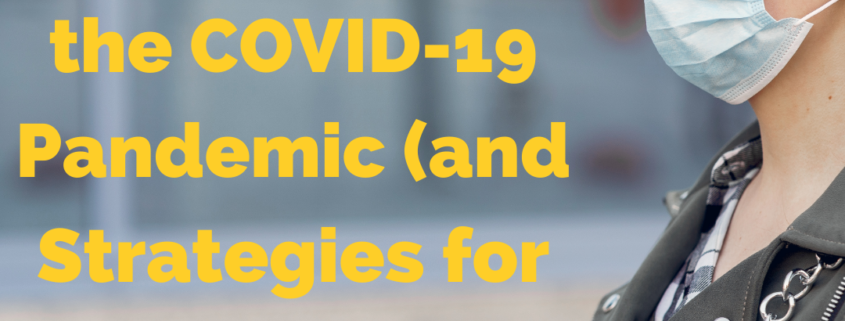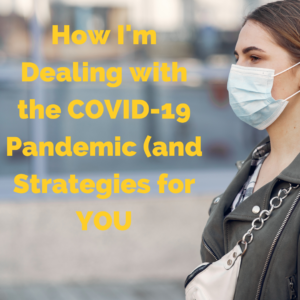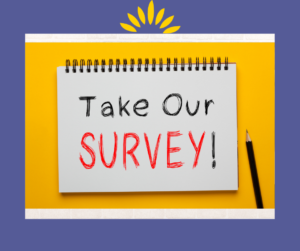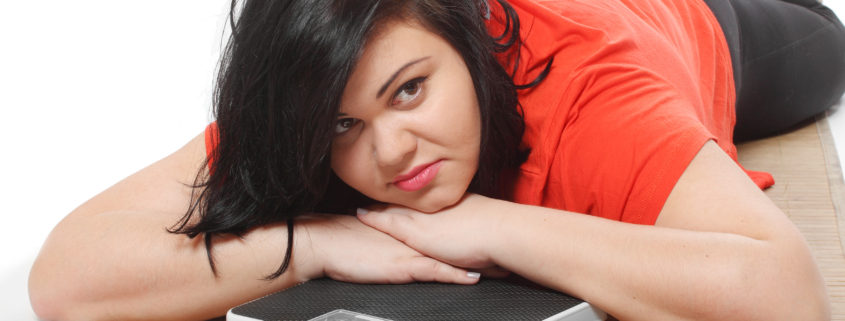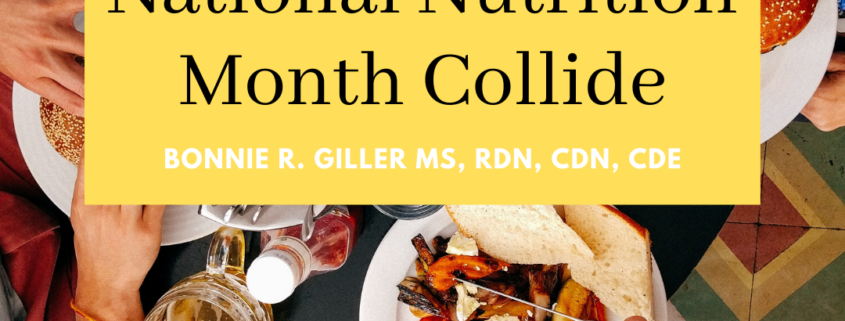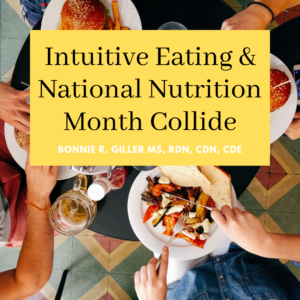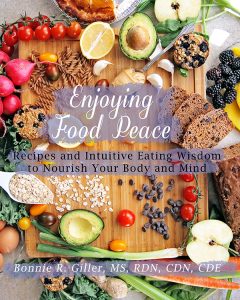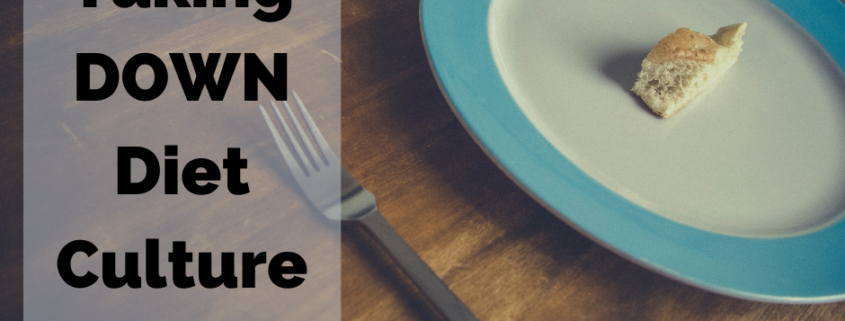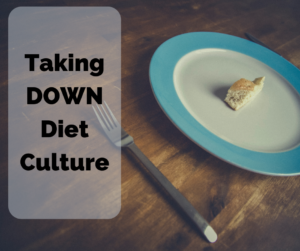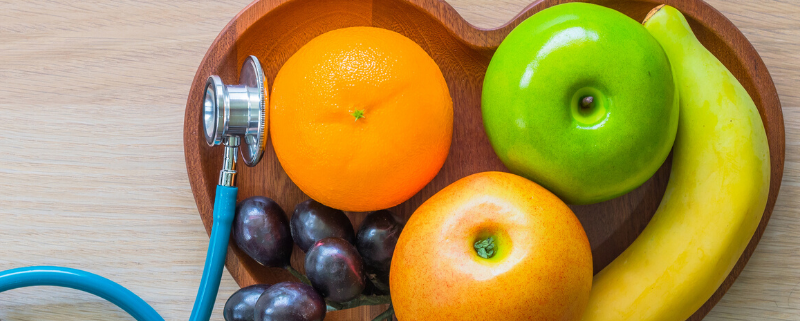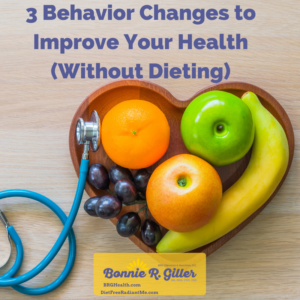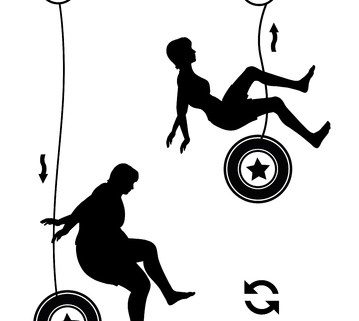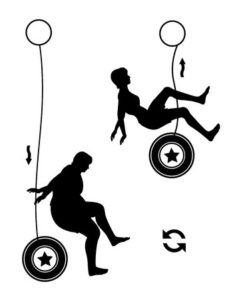This blog is sponsored by my book: Passover the Healthy Way: Light, Tasty and Easy Recipes Your Whole Family Will Enjoy, available on Amazon.
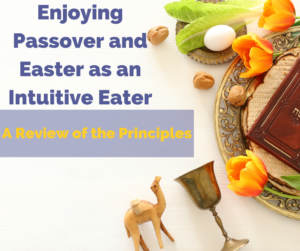 With Passover starting this evening and Easter arriving on Sunday, you might be wondering how you can continue your intuitive eating practice during the holidays (especially if you are new to this). I know it can be overwhelming. There’s eight days of Passover meals, a hearty Easter dinner and lots of sweets around the house.
With Passover starting this evening and Easter arriving on Sunday, you might be wondering how you can continue your intuitive eating practice during the holidays (especially if you are new to this). I know it can be overwhelming. There’s eight days of Passover meals, a hearty Easter dinner and lots of sweets around the house.
A good place to start is to remember that you were born an intuitive eater. While it may have been buried under years of dieting, the work you’ve done thus far has brought that ability closer to the surface.
Below is a review of the Intuitive Eating principles and some tips to enjoy the holidays as an intuitive eater.
Principle #1: Reject the Diet Mentality
The first step to enjoying Passover or Easter as an intuitive eater is reject the diet mentality!
What is the “diet mentality”?
It’s when you have a list of food rules to guide your eating; you label foods as “good” and “bad, “legal” and “illegal”, “can have” and “can’t have”. It’s when you elevate certain foods above the others, and then when you “fall off track”, promise yourself to start again tomorrow.
As you are preparing for the holiday this year, let’s work on throwing away all of the food rules around the holiday foods because you don’t need them. The only things you need are your body, heart, and the food in front of you.
With practice you will begin to see food as food, rather than with the labels “good” or “bad”
Passover and Easter are enjoyable times of celebration and being with family, not a time of restriction. It’s about enjoying yummy foods and recipes handed down from generation to generation.
Listen to what your body is telling you and go from there.
What ONE step will you take to reject the diet mentality during Passover and Easter? Comment below!
Principle #2: Honor Your Hunger
When you sit down to eat during Passover and Easter, breathe for a moment to take stock.
Are you feeling hungry? How hungry are you? What does your body need? How will you nourish yourself?
These are some of many questions you can ask yourself to learn about your body and what foods will make you feel like your brightest self.
This is where you can really begin your journey to restore trust in the relationship between your body and food and begin to reacquaint yourself with the various signals of hunger.
Remember to not let yourself get too hungry! When primal hunger hits, it’s difficult to stop eating from a place of comfortable fullness (more on fullness later in this blog).
In what ways can you “honor your hunger” this Passover or Easter?
Principle #3: Make Peace with Food
Give yourself the unconditional permission to eat the food you love. When you restrict food, it leads to deprivation which leads to overeating and feelings of guilt when you indulge against your “food rules.”
When all food on the table is “emotionally equal”, you’ll be able to eat what you want to satisfy your hunger and to stop when you’re comfortably full. When you elevate certain foods, they are highly charged, and you battle with it.
So this Passover or Easter, call a truce in the war on food and enjoy!
What food(s) do you feel you need to make peace with? Comment below.
Principle #4: Challenge the Food Police
Don’t let diet culture control tell you how to eat this Passover and Easter…or ever for that matter!
Food isn’t “good” or “bad.” Food is food!
The purpose of eating is to nourish your body and enjoy the experience.
I recognize that the food police rules are screaming in your head “don’t eat this, don’t eat that”, “you can only have one of those” etc.
You can be louder than the food police. Challenge those voices that play in your head and bring up your ally voices, those kind, nurturing voice that sounds like your grandma, “it’s going to be okay, you’ve got this”.
Reach out to me if you need help challenging the food police as we head into the holiday!
Principle #5: Respect Your Fullness
Your body was created with built-in signals that work to tell you when you are hungry and when you are satisfied enough to stop eating. Whether you realize it or not, you were born an intuitive eater!
However, when you’ve been dieting for a while, you stop listening to those signals and they no longer guide you to begin eating or to stop eating. Most likely you finish eating when the plate is empty (“clean the plate club” anyone). Learning to arrive at the table in a gentle hungry state will enable to you stay tuned in to know when you’re comfortably full.
There are a lot of meals over the 8 days of Passover. Let’s try to pause mid-meal and pay attention to whether you are getting satiated. This is not a commitment to no longer eating the meal, it’s just a check in point to stay in conscious eating mode, versus autopilot mode.
Let me know how this works out for you! Comment below!
Principle #6: Discover the Satisfaction Factor
Do you enjoy your meals? Do you even know what foods you really like and want to eat? I’ve heard from many clients who’ve been dieting for years (and even decades) that they just don’t know what they like anymore.
Well, it’s time to discover your true food preferences. What tastes do you like? Textures? Temperature of food?
Explore these qualities of food over the next few weeks so you can reacquaint yourself with what gives you the most pleasure.
During Passover and Easter this year, really be with your food. Take a moment before the meal to breathe, put your phone away, and focus on the food in front of you. Try to eat slowly, putting your fork down in between bites so you can truly savor what is in your mouth. It will make the eating experience truly satisfying.
What’s your favorite Passover or Easter food? Comment below!
Principle #7: Cope with Your Emotions without Food
The holidays can stir up a lot of different emotions. From happiness to sadness, from excitement to anxiety; it can be a confusing time.
You may feel pressured to turn to food to deal with the stress of hosting or attending Passover Seder or Easter dinner with certain family members.
One of the intuitive eating principles is to cope with emotions without turning to food…rather use kindness! This means experiencing what you are feeling and accepting those feelings without judgement.
And, doing things for yourself in that moment that serves you best!
What ways can you be kind to yourself during moments of difficult emotions? Comment below!
Principle #8: Respect Your Body
It can be hard to love your body in today’s world. Everywhere you look you see images of skinny women and buff men.
It’s important to keep in mind that what you see on social media is usually not real – these are photoshopped images. People come in all different shapes and sizes; all of them are beautiful.
You may struggle with loving your body, I get it! Instead, work to reach a place where you can respect your body and accept yourself with neutrality and kindness.
I’m currently working with women in my The Body Image Healing Program™. If you’re interested in getting support on your body image healing journey, fill out this interest form, and I’ll be in touch.
Principle #9: Exercise – Feel the Difference
Our bodies were made to move!
Movement is important for a happy and healthy body that’s strong.
You don’t need to hit the gym 5 times a week or exercise until it hurts. Instead, consider what feels gentle to your body and what brings you joy!
That could be taking a walk around the block or doing some yoga moves in your living room.
Feel the difference when you’re moving. How does it impact your stress levels, your sleeping patterns, and your overall feeling of empowerment? Comment below!
Principle #10: Honor Your Health with Gentle Nutrition
Now that we’ve discussed the other nine principles of intuitive eating, it’s time to address the tenth: Honor Your Health with Gentle Nutrition
Eating well is not about perfection! “In matters of taste, consider nutrition, and in matters of nutrition, consider taste”.
That pretty much sums it up. Choose foods that you enjoy and taste great, and that also make you feel good. And be flexible! Your body has all the wisdom, now it’s time to trust it!
Best wishes for a happy and healthy Passover and Easter.
 Are you finding it challenging to nourish yourself well these days? The pandemic is certainly bringing up food challenges for people and the result is a lack of structured meals and haphazard eating.
Are you finding it challenging to nourish yourself well these days? The pandemic is certainly bringing up food challenges for people and the result is a lack of structured meals and haphazard eating.


